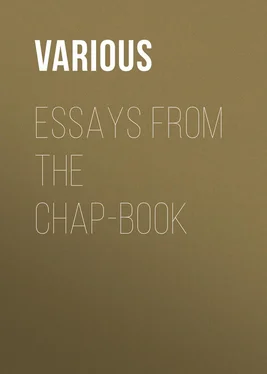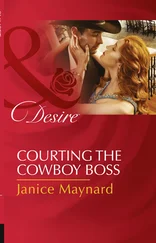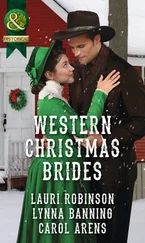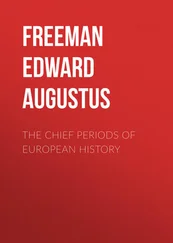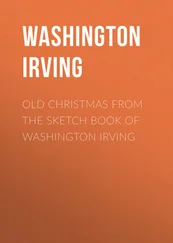Various - Essays from the Chap-Book
Здесь есть возможность читать онлайн «Various - Essays from the Chap-Book» — ознакомительный отрывок электронной книги совершенно бесплатно, а после прочтения отрывка купить полную версию. В некоторых случаях можно слушать аудио, скачать через торрент в формате fb2 и присутствует краткое содержание. Жанр: foreign_prose, sketch, на английском языке. Описание произведения, (предисловие) а так же отзывы посетителей доступны на портале библиотеки ЛибКат.
- Название:Essays from the Chap-Book
- Автор:
- Жанр:
- Год:неизвестен
- ISBN:нет данных
- Рейтинг книги:3 / 5. Голосов: 1
-
Избранное:Добавить в избранное
- Отзывы:
-
Ваша оценка:
- 60
- 1
- 2
- 3
- 4
- 5
Essays from the Chap-Book: краткое содержание, описание и аннотация
Предлагаем к чтению аннотацию, описание, краткое содержание или предисловие (зависит от того, что написал сам автор книги «Essays from the Chap-Book»). Если вы не нашли необходимую информацию о книге — напишите в комментариях, мы постараемся отыскать её.
Essays from the Chap-Book — читать онлайн ознакомительный отрывок
Ниже представлен текст книги, разбитый по страницам. Система сохранения места последней прочитанной страницы, позволяет с удобством читать онлайн бесплатно книгу «Essays from the Chap-Book», без необходимости каждый раз заново искать на чём Вы остановились. Поставьте закладку, и сможете в любой момент перейти на страницу, на которой закончили чтение.
Интервал:
Закладка:
But let me dwell no more on my own peculiar stigmata, but show how – to paraphrase Prior:
“All earth is by the ears together
Since first that horrid book come hither.”
I haunt photograph shops, look over the frontispieces of illustrated magazines, and various collections of likenesses, until I am wearied to the core of looking at the ears of prominent persons, and it brings forth a sense of profound, of heartfelt gratitude that Daguerre was not born till this century, almost till our own day, and that thus the ears of centuries of countless geniuses are disguised in their counterfeit presentments by the meaningless conventionalities of the artist’s brush, which represent in peaceful and happy monotony and perfection that unfortunate, that abhorred member. I plainly see, too, what the result of all this will be. I picture to myself the poet of the future, hooded, veiled, to conceal his features; robed in flowing drapery to cover his feet; with his hands in a muff; living alone to hide his personal habits; studiously avoiding the subject of his health; painstaking in showing no decided preferences; void of passion lest he be deemed erotic; void of epigram or humor lest his wit be taken as earnest; until I sigh mournfully for the time spoken of in Genesis, when “there was no more earing.”
I will not sign my name to this heartfelt communication, since it would have no weight as the cognomen of either a genius or a mattoid, and perhaps the cry of warning will be more heeded from a suffering incognito. Besides, I do not wish to be shunned by my fellow-creatures as one who is determined to know their innermost worst, with as cruel a mental insistence, and with a method genetic to that employed by the Inquisition in penetrating the brain of its victims by pouring boiling oil in the ears. Nor am I willing to have such an odious position in society that none of my friends will visit me, or come in my presence unless fortified with ear-muffs against my insinuating gaze.
The Pleasures of Historiography
By
Alice Morse Earle
I AM an historiographer; and being desirous and assiduous of accuracy in my statements, I am given to recourse to first sources of authority, to the fountain springs of great events; I am a scientifically historical Gradgrind; I build up my histories inductively from facts by the most approved scientific processes. And I can say with feeling and with emphasis, in the words of Sir Thomas Browne: “Sure, a great deal of conscience goes into the making of a history.”
A few days ago the need of exact knowledge upon a certain point in the criminal history of the colonies determined me to seek my information in the most unerring and unimpeachable historical records we have, those of the Criminal Court. Those I sought were of a large city, I might say of Chicago, only she has no colonial records; so I frankly reveal that I wished to search the records of the criminal courts of New Amsterdam.
Now I had read a score of times, and heard a score of times more in the glibly-rounded sentences of elegant historical lectures, patriotic addresses, commemorative “papers” of patriotic-hereditary societies, that to the municipal honor of that very large frog in a puddle, viz.: New York, which grew out of the pollywog New Amsterdam, all records of colonial times of that city were still preserved, were cherished as sacred script in that fitting cabinet, the venerable Hall of Records in the City Hall Park. Thus introduced, I ventured to its gates.
It is an ancient, dingy building, whose opening portals thrust you upon a cage-like partition strongly suggestive of a menagerie, and also olfactorily suggestive of the menageries’ accompaniment, “an ancient and a fish-like” – nay, more, a bird- and beast-like smell.
A doorway on either side of the cage lead to various desks and rooms, and enclosures and closets, all labelled with well-worn signs; and as I glanced bewildered from placard to placard, from sign to sign, there approached that blessed and gallant metropolitan engine for the succor of feminine ignorance, incapacity, and weakness – a policeman. Gladly did I follow in his sturdy wake to the office of the Clerk of Records, who would know all about it. Alas! he was out. A callow, inky youth, his deputy, had never heard of any Dutch records, and didn’t believe there were any in New York. My policeman had vanished. The youth leaned out of his latticed window, pointed round a corner to an enclosed office: “Go ask him , he can tell you.” I went and asked him; for a third time I told my tale, already rehearsed to policeman and youth. “I wish to see the colonial records of the criminal courts in New York in the seventeenth century. Part are in Dutch. I hear they have been translated, and that the English translation is here, for the use of the public. If this is not so, I wish to see the original Dutch and English records from the year 1650 to 1700.”
It is impossible to overstate the expression of blank surprise and incredulity with which this inquiry was greeted. The official vouchsafed one curt answer: “I never heard of such a thing as a Dutch trial in the criminal courts of New York, and I don’t believe there ever was one. If so, he will know.”
“He” was a haven, for his office was labelled Satisfaction – and he was satisfactory. After a fourth explanation of my desires, he answered me with the elaborately patient and compassionate politeness usually employed by men in business and public offices to a woman’s apparently useless inquiries. He said gently: “Only deeds and transfers are here in the Hall of Records; those records you wish to see are all in the County Clerk’s office, over there.”
Over there was the court-house of Tweed’s inglorious fame. Within the said office four transfers, from book-keeper to messenger, to civil clerk, to County Clerk, found me, after four more dogged repetitions, encaged myself in a dingy wire prison, surrounded by millions of compartments with papers and deeds, and flanked by scores of spittoons. Errand boys, messengers, aged porters, young attorneys, came and went, papers were given and received with mechanical rapidity and precision by the monarch of the cage, an elderly Irishman, smooth-shaven, massive-featured, inscrutable, blank of expression, who finally turned to me with civil indifference. But this was not the right place for me to come; those records were at the court-house at Ninth Street, where the criminal courts were held. I patiently prepared to assail the Ninth Street abode of Themis, not without an unworthy suspicion that this Hibernian Sphinx sent me there to get rid of me. But a gentleman-like and eavesdropping bystander proffered his advice: “Those records you want are in the office of the Clerk of the Court of Common Pleas, in the third story of this building.” And he thrust me with speed in the ascending elevator. The room pointed out to me as my goal proved to be the Supreme Court, a scene of peaceful dignity, but, alas, there was no such officer anywhere as the Clerk of the Court of Common Pleas. Gloomily turning to the Surrogate’s office to examine the will of this Dutch criminal whom I was running to earth, mine eyes encountered this sign: Office of the Court of Common Pleas. Certainly this was the office and the records were here, though the clerk was not. Other clerks there were; to the most urbane for the tenth time I told my tale, and finally was shown the records. “These are in Dutch,” I said; “will you show me the English translation?” “Are they in Dutch?” he answered with some animation. “I never knew that. I have been here twenty years, and no one has ever asked to see them before.”
Читать дальшеИнтервал:
Закладка:
Похожие книги на «Essays from the Chap-Book»
Представляем Вашему вниманию похожие книги на «Essays from the Chap-Book» списком для выбора. Мы отобрали схожую по названию и смыслу литературу в надежде предоставить читателям больше вариантов отыскать новые, интересные, ещё непрочитанные произведения.
Обсуждение, отзывы о книге «Essays from the Chap-Book» и просто собственные мнения читателей. Оставьте ваши комментарии, напишите, что Вы думаете о произведении, его смысле или главных героях. Укажите что конкретно понравилось, а что нет, и почему Вы так считаете.
